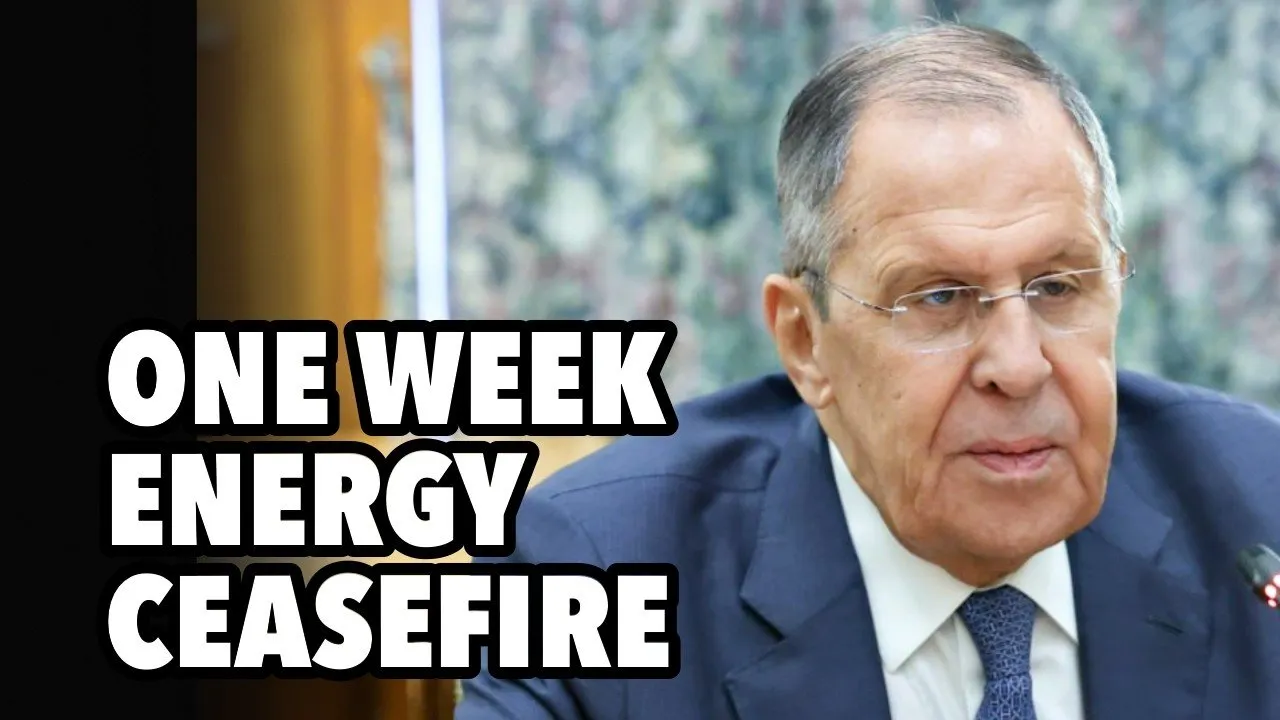Table of Contents
Harvard's Stephen Walt provides a realist critique of Trump's foreign policy approach, arguing that abandoning alliance management and multilateral cooperation in favor of unilateral military action represents a dangerous departure from successful American diplomatic traditions.
Key Takeaways
- Trump's foreign policy represents unilateralism rather than isolationism, characterized by willingness to use military force without allied consultation or institutional constraints
- Successful American leaders like George H.W. Bush understood the importance of building international coalitions and knowing when to stop military campaigns
- The "concert of kingpins" approach treats allies with contempt while preferring deals with authoritarian strongmen over democratic institutions and legal frameworks
- American alliance management historically succeeded through respectful treatment of partners rather than coercive heavy-handedness, unlike Soviet Warsaw Pact relationships
- Regime change fantasies continue to drive policy despite consistent failures in Iraq, Libya, and other interventions that produced chaos rather than democratic transformation
- International relations concepts like the security dilemma and balance of power remain relevant for understanding why policies like NATO expansion triggered Russian reactions
- Iranian nuclear weapons might paradoxically stabilize rather than destabilize the Middle East by forcing all parties to exercise greater restraint in their regional competition
- Zero-sum thinking and crude transactional approaches to international relations ignore the complex interdependencies that make cooperation beneficial even among competitors
- Alliance networks provide not just military assets but also political legitimacy, shared costs, regional expertise, and protection against strategic miscalculations
Timeline Overview
- 00:00–08:30 — Introduction and Book Concept: Stephen Walt explains his upcoming work on international relations concepts leaders ignore, leading to major strategic mistakes
- 08:30–18:45 — Historical Examples of Effective Leadership: Analysis of Bismarck's diplomatic mastery, Sadat's breakthrough with Israel, and George H.W. Bush's Gulf War coalition building
- 18:45–28:20 — Alliance Management Principles: Importance of treating allies with respect, burden-sharing benefits, and how American soft power historically differed from Soviet coercion
- 28:20–38:15 — Trump Doctrine Characteristics: Unilateralist rather than isolationist approach, preference for strongman relationships, zero-sum worldview, and "concert of kingpins" governance model
- 38:15–48:30 — Iran Bombing Decision Analysis: Trump's bandwagon-jumping behavior, attraction to military solutions with limited commitment, parallels to tariff negotiation tactics
- 48:30–58:45 — Regime Change Fantasy Critique: Comparison of college-era Iraq War opposition to current Iran policy, examination of whether weakening proxies creates democratization opportunities
- 58:45–68:20 — Iranian Regional Role Assessment: Historical context of exclusion from Madrid peace process, proxy development as response to marginalization, Obama nuclear deal as missed opportunity
- 68:20–78:35 — Nuclear Proliferation Dynamics: Question of whether bombing accelerates Iranian weapons development, historical precedents of nuclear deterrence creating stability
- 78:35–88:50 — Middle East Power Balance: Analysis of regional ambitions among Saudi Arabia, Turkey, UAE, and Iran, with none capable of establishing true regional hegemony
- 88:50–98:25 — Alliance Networks vs. Unilateralism: Debate over Iranian spoiler role, October 7th attack motivations, and U.S. responsibility for regional destabilization patterns
International Relations Theory and Strategic Mistakes
Stephen Walt's forthcoming analysis of leadership failures centers on a fundamental observation: basic international relations concepts remain remarkably consistent across time and geography, yet leaders repeatedly ignore them when making crucial decisions. The security dilemma, balance of power dynamics, and nationalist forces operate predictably, but policymakers often assume they can transcend these realities through superior technology, ideology, or personal relationships.
The security dilemma exemplifies how well-intentioned actions can trigger unintended consequences. NATO expansion eastward may have been designed to enhance European security and integrate former Soviet satellites into Western institutions, but it inevitably appeared threatening to Russian leaders regardless of American intentions. This doesn't justify Russian aggression, but it explains why realist scholars predicted that expansion would eventually provoke confrontation.
Similarly, Vladimir Putin's invasion of Ukraine demonstrated misunderstanding of both balance of power mechanics and Ukrainian nationalism. The operation assumed that overwhelming force would quickly overwhelm resistance while other powers remained passive observers. Instead, Ukrainian nationalism proved far stronger than anticipated while the invasion triggered exactly the kind of balancing behavior that realist theory predicts—neutral countries joining NATO and unprecedented Western unity against Russian expansion.
These patterns repeat because human psychology and state behavior follow recognizable patterns despite changing technology and specific circumstances. Leaders who understand these dynamics can anticipate reactions and design policies that work with rather than against international system tendencies. Those who ignore them consistently encounter unexpected resistance and unintended consequences.
Walt's emphasis on simple concepts reflects a broader realist conviction that international politics operates according to discoverable regularities that transcend particular historical moments or cultural contexts. Power, security, and sovereignty concerns drive state behavior regardless of ideological differences or technological capabilities.
Historical Models of Effective Diplomatic Leadership
The contrast between effective and ineffective diplomatic leadership illustrates how understanding international relations concepts translates into practical policy success. Otto von Bismarck's management of German unification demonstrates sophisticated appreciation for balance of power dynamics and the importance of restraint even during periods of military success.
Bismarck's genius lay not just in winning wars but in ensuring that Prussia fought each conflict against isolated opponents while avoiding broader coalitions that could contain German power. His manipulation of diplomatic circumstances allowed Prussia to appear as the injured party in conflicts where Prussian objectives were often aggressive. Most importantly, he recognized when expansion should stop—after German unification was complete, he became a conservative status quo leader rather than continuing to pursue additional territorial gains.
Anwar Sadat's breakthrough with Israel exemplifies how leaders can overcome security dilemmas through dramatic gestures that demonstrate genuine commitment to changed relationships. His Jerusalem visit succeeded precisely because it was risky—the gesture's credibility came from the personal and political costs Sadat accepted to signal Egyptian sincerity about peace rather than merely tactical maneuvering.
George H.W. Bush's Gulf War leadership represents perhaps the finest example of American diplomatic management in the post-Cold War era. The coalition-building process secured international legitimacy through UN authorization while distributing costs among multiple partners. Equally important, Bush understood when to stop—rejecting calls to march on Baghdad and overthrow Saddam Hussein despite military capability to do so.
This restraint reflected appreciation for both legal constraints (the UN resolution authorized liberation of Kuwait, not regime change) and practical limitations (occupying Iraq would exceed coalition mandates and create unpredictable consequences). The contrast with his son's later invasion of Iraq demonstrates how similar military capabilities can produce vastly different outcomes depending on diplomatic preparation and strategic restraint.
Alliance Management and American Soft Power
American success in building and maintaining alliance networks throughout the Cold War and beyond reflects sophisticated understanding of how to exercise leadership without generating the resentment that destroys cooperative relationships. The NATO model succeeded because American leadership was generally exercised with respect for allied concerns and genuine consultation on major decisions.
This approach differed fundamentally from Soviet management of Warsaw Pact relationships, which relied on coercion and periodic military intervention to maintain control. American allies chose their association and generally benefited from it economically and security-wise, creating positive-sum relationships that strengthened over time rather than generating constant friction.
The benefits of alliance cooperation extend beyond simple burden-sharing to include access to regional expertise, intelligence capabilities, and political legitimacy that unilateral action cannot provide. Allied governments understand local conditions and cultural dynamics that American policymakers might miss, while their participation signals international support rather than narrow American self-interest.
Perhaps most importantly, allied consultation can prevent strategic mistakes by forcing American leaders to explain and defend their proposals to partners who may see different aspects of complex situations. If multiple allies express skepticism about particular initiatives, this should trigger reconsideration rather than dismissal of their concerns.
The Trump administration's treatment of allies represents a fundamental departure from these successful patterns. Threatening to make Canada the 51st state or seize Greenland from Denmark treats some of America's most reliable partners as objects to be manipulated rather than respected allies whose cooperation requires consideration for their interests and sovereignty.
The "Concert of Kingpins" and Authoritarian Governance Models
Trump's apparent preference for dealing with authoritarian leaders rather than democratic institutions reflects a broader worldview that sees international politics as transactions between strong individual leaders rather than complex interactions among institutional systems. This "concert of kingpins" approach assumes that world problems can be solved through direct negotiations among powerful men who can make binding decisions without worrying about legislative oversight, public opinion, or legal constraints.
The appeal of this model lies in its apparent simplicity—rather than navigating complex democratic processes and multilateral institutions, leaders can supposedly cut deals quickly based on personal relationships and mutual respect for each other's power. Trump's comfort with figures like Xi Jinping, Vladimir Putin, Viktor Orban, and Muhammad bin Salman reflects this preference for autocratic efficiency over democratic deliberation.
However, this approach ignores the fundamental reasons why democratic institutions and legal frameworks exist. They provide predictability, continuity, and legitimacy that personal relationships cannot sustain across changing circumstances and leadership transitions. Agreements made by individual strongmen may be reversed by successors or circumstances beyond any single leader's control.
Moreover, the kingpin model fundamentally misunderstands how power actually operates in complex modern societies. Even authoritarian leaders must maintain support among key constituencies and manage competing institutional interests. Assuming that personal relationships with individual leaders can transcend these deeper structural factors reflects misunderstanding of how political systems actually function.
The zero-sum worldview that accompanies this approach treats international relations as simple competitions where one side's gain necessarily represents another's loss. This perspective misses the potential for positive-sum cooperation and shared benefits that characterize many international interactions, from trade relationships to security cooperation against common threats.
Gunboat Diplomacy and Limited Military Engagement
Trump's approach to military force represents a particular form of gunboat diplomacy that seeks to achieve political objectives through limited applications of overwhelming power rather than sustained engagement or occupation. This strategy assumes that dramatic demonstrations of military capability can compel adversaries to make concessions without requiring long-term commitments or complex occupation scenarios.
The bombing of Iranian nuclear facilities exemplifies this approach—using specialized military capabilities that only the United States possesses to inflict significant damage while avoiding the ground force commitments that characterized Iraq and Afghanistan interventions. The strategy aims to shock adversaries into negotiation rather than pursuing complete military victory or regime change through occupation.
This approach appeals to Trump's transactional worldview and his desire to be seen as a dealmaker who can achieve dramatic breakthroughs through bold action. The parallel to his tariff strategy is instructive—threaten overwhelming economic pressure, apply enough to demonstrate seriousness, then wait to see if the target makes acceptable concessions before deciding whether to escalate further.
However, this strategy faces several limitations. First, it assumes that the targets will interpret military pressure as signals for negotiation rather than evidence that they need better defenses or deterrent capabilities. Iranian leaders might conclude that they need nuclear weapons precisely because conventional defenses proved inadequate against American attack.
Second, the approach requires credible threats of escalation if initial strikes don't achieve desired results. If adversaries call the bluff by rebuilding capabilities or refusing to negotiate, the strategy forces choices between costly escalation or acceptance of failure to achieve stated objectives.
Third, repeated use of this approach may reduce its effectiveness as other powers develop countermeasures or recognize patterns that allow them to minimize damage while avoiding capitulation.
Regime Change Fantasies and Historical Lessons
The persistent American attraction to regime change as a solution to international problems reflects fundamental misunderstanding of how political transformation actually occurs and what external powers can realistically achieve through military intervention. Despite repeated failures in Iraq, Libya, Afghanistan, and other contexts, policymakers continue to believe that removing hostile governments will automatically produce more favorable alternatives.
The fantasy assumes that societies are simply waiting for liberation from oppressive rulers and will naturally embrace democratic governance once existing authorities are eliminated. This perspective ignores the complex social, economic, and institutional foundations required for stable democratic governance, as well as the ethnic, religious, and tribal divisions that authoritarian systems often suppress rather than resolve.
Even when existing regimes are genuinely unpopular, their collapse often produces chaos rather than improvement because alternative institutions don't exist or lack the capacity to maintain order and provide services. Libya exemplifies this dynamic—Muammar Gaddafi's government was clearly oppressive and had lost legitimacy, but its elimination created a power vacuum filled by competing militias and armed groups rather than democratic alternatives.
The Iranian case presents additional complications because the Islamic Republic, despite its authoritarian character, maintains significant institutional capacity and social support among particular constituencies. Economic sanctions and military pressure might weaken the regime but could also strengthen hardliners by validating their arguments about external threats while marginalizing moderates who advocated engagement with the West.
Historical evidence suggests that political liberalization typically occurs through internal processes driven by economic development, educational expansion, and generational change rather than external military pressure. Countries that democratized successfully generally did so gradually through negotiated transitions that preserved institutional continuity while expanding political participation.
Nuclear Proliferation and Regional Stability Dynamics
The question of whether Iranian nuclear weapons would destabilize or potentially stabilize the Middle East challenges conventional wisdom about proliferation risks while illustrating how security dynamics can produce counterintuitive outcomes. The standard argument assumes that Iranian nuclear capabilities would enable more aggressive regional behavior while creating risks of nuclear terrorism or accidental war.
However, realist analysis suggests that nuclear weapons might actually impose restraint on all regional powers by raising the costs of miscalculation and forcing more careful consideration of escalation dynamics. Israel's current ability to act with relative impunity partly reflects confidence that its nuclear monopoly provides ultimate security against existential threats, enabling more aggressive conventional operations.
Iranian nuclear weapons would force Israeli leaders to consider whether particular military operations might trigger nuclear retaliation, potentially reducing the frequency and intensity of regional conflicts. Similarly, Iran might reduce reliance on proxy forces if nuclear deterrence provided more reliable security guarantees than asymmetric warfare capabilities.
The India-Pakistan precedent supports this stabilizing interpretation. Despite intense rivalry and multiple territorial disputes, the two countries have avoided major wars since both acquired nuclear weapons, even though they fought several significant conflicts before nuclear proliferation occurred. The 1999 Kargil conflict and other limited engagements suggest that nuclear weapons impose ceiling effects on escalation even when they don't eliminate competition entirely.
China's behavior after acquiring nuclear weapons in 1964 provides another relevant example. American policymakers feared that Mao Zedong's radical ideology would make Chinese nuclear weapons particularly dangerous, but China actually became more cautious in its international behavior and never threatened nuclear use even during periods of intense confrontation with the United States and Soviet Union.
Nuclear weapons impose their own logic of caution regardless of the particular ideologies or personalities of leaders who control them, because the consequences of miscalculation become catastrophic rather than merely costly.
Regional Power Competition and Balancing Dynamics
The Middle East's complex balance of power involves multiple states with overlapping ambitions but insufficient resources to achieve regional hegemony, creating persistent instability as different powers compete for influence while no single actor can impose order. Iran, Saudi Arabia, Turkey, Israel, and Egypt all have regional aspirations but face geographic, demographic, or resource constraints that prevent dominance.
Iran's influence peaked during the height of Syrian civil war when extensive proxy networks provided leverage across multiple countries, but this expansion triggered balancing responses from regional rivals and ultimately proved unsustainable when confronted by Israeli technological superiority and American military capabilities. The systematic dismantling of Iranian proxy networks since October 7th demonstrates the limits of asymmetric strategies against opponents with overwhelming conventional advantages.
Saudi Arabia under Muhammad bin Salman has pursued similarly ambitious regional policies, including military intervention in Yemen and political interference in Lebanese affairs, suggesting that Iranian activism partly responds to competitive dynamics rather than representing unique ideological commitments to regional revolution.
Turkey's involvement in Syrian, Libyan, and other regional conflicts reflects President Erdogan's neo-Ottoman ambitions, while Israel's expanding ties with Arab states through the Abraham Accords represents efforts to reshape regional alignment against Iranian influence.
However, none of these powers possesses the combination of geographic position, population, economic resources, and military capabilities required for sustainable regional hegemony. This structural reality suggests that Middle East politics will continue to be characterized by competitive balancing rather than hierarchical order under any single dominant power.
The United States has attempted to provide external stabilization through alliance networks and military presence, but this approach requires sustained commitment and resources that American domestic politics increasingly questions. The alternative of regional self-regulation through balance of power mechanisms offers potentially more sustainable outcomes but requires accepting ongoing competition and occasional conflicts among regional powers.
Economic Development vs. Political Influence Trade-offs
The debate over Iranian motivations and objectives illustrates broader questions about whether states can simultaneously pursue economic development and political influence, or whether these goals inevitably conflict in ways that force difficult choices between prosperity and power projection.
Iran's experience with the JCPOA nuclear agreement demonstrates both the possibilities and limitations of trading political concessions for economic opportunities. The deal explicitly addressed nuclear proliferation concerns while providing sanctions relief that could have enabled significant economic development and integration with global markets.
However, the agreement did not cover regional proxy relationships or missile development programs, reflecting Iranian insistence that nuclear negotiations should not extend to broader security issues. This position reflected calculations that complete accommodation would leave Iran vulnerable to American and Israeli pressure while providing only uncertain economic benefits.
The Trump administration's withdrawal from the JCPOA and reimposition of "maximum pressure" sanctions validated Iranian concerns about American reliability while demonstrating how domestic political changes can override international agreements. This experience likely reinforced Iranian preferences for maintaining independent deterrent capabilities rather than relying entirely on negotiated arrangements.
The broader question involves whether any country can achieve sustainable prosperity while maintaining adversarial relationships with major economic powers. Iranian isolation from global financial systems and technology markets imposes significant costs that reduce living standards and limit development opportunities regardless of domestic policy choices.
However, complete accommodation might also involve political costs that authoritarian regimes cannot accept without risking domestic legitimacy. The Iranian government's Revolutionary identity partly depends on resistance to American hegemony, making accommodation difficult even when it might provide economic benefits.
Conclusion
Stephen Walt's realist analysis reveals how Trump's unilateral gunboat diplomacy represents a dangerous departure from the alliance-based cooperation that historically enabled American global leadership. By treating allies with contempt while preferring authoritarian strongmen, the current approach undermines the institutional foundations that made American power both effective and legitimate. The continued attraction to regime change fantasies ignores overwhelming evidence that military intervention typically produces chaos rather than democratic transformation, while the "concert of kingpins" model misunderstands how power actually operates in complex modern societies.
Rather than pursuing zero-sum competition through limited military strikes, successful American strategy requires rebuilding cooperative relationships based on mutual respect and shared interests, recognizing that even adversaries like Iran have legitimate security concerns that must be addressed through sustained diplomatic engagement rather than episodic bombing campaigns.
Practical Implications
- For Alliance Management: Rebuild respectful consultation mechanisms with democratic allies while reducing dependence on authoritarian partners, recognizing that allied expertise and legitimacy provide strategic advantages that unilateral action cannot replicate
- For Military Strategy: Develop clear criteria for when limited strikes can achieve political objectives versus when they risk triggering escalation spirals that require sustained commitment or acceptance of strategic failure
- For Nuclear Proliferation Policy: Consider whether containment and deterrence frameworks might prove more sustainable than prevention strategies that require repeated military intervention and regime change attempts
- For Regional Stability: Design diplomatic frameworks that acknowledge legitimate security interests of all regional powers rather than attempting to exclude particular countries from multilateral arrangements
- For Economic Statecraft: Coordinate sanctions policies with allies to maximize effectiveness while preserving opportunities for diplomatic engagement when conditions permit negotiated solutions
- For Strategic Planning: Apply international relations theory systematically to anticipate how security dilemmas, balancing behavior, and nationalist reactions will shape responses to American initiatives
- For Crisis Management: Maintain multiple diplomatic channels even during military operations to preserve off-ramps and prevent conflicts from escalating beyond original objectives
- For Democratic Governance: Strengthen institutional constraints on executive power in foreign policy to prevent impulsive decisions that ignore allied concerns and historical lessons about intervention failures





